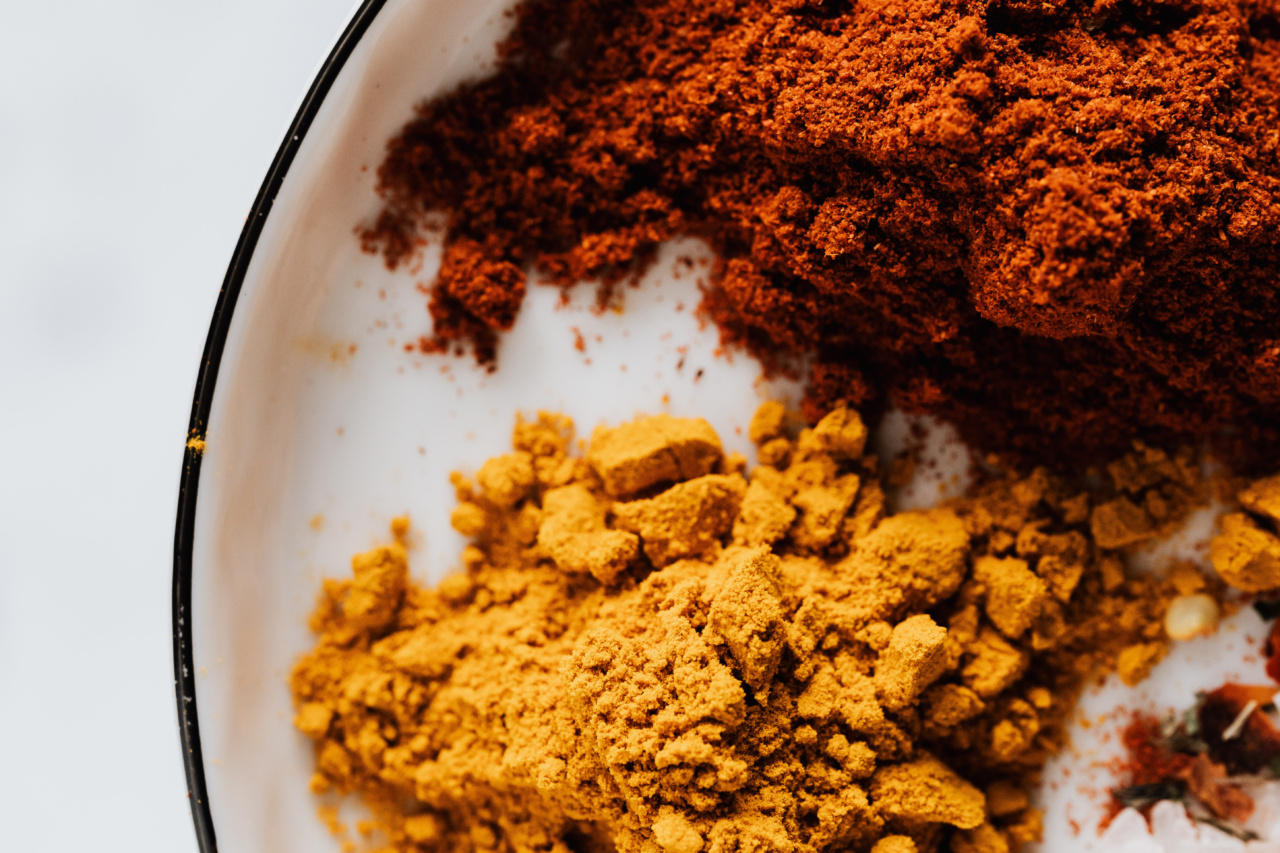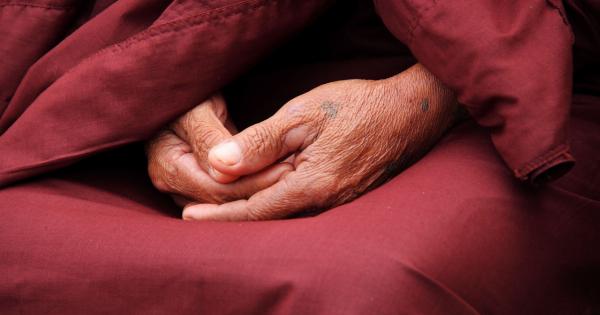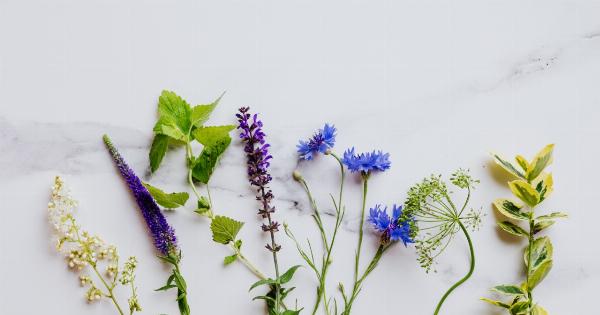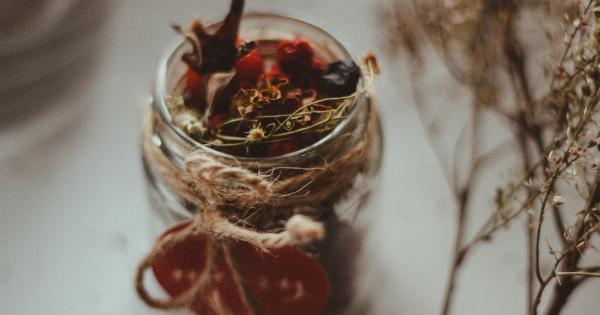Menopause is a natural phase in a woman’s life that signifies the end of her reproductive years. It typically occurs between the ages of 45 and 55 and is characterized by hormonal changes that can cause a range of symptoms, including hot flashes.
These sudden waves of intense heat and sweating can be incredibly uncomfortable and disruptive to daily life. While there are conventional treatments available to alleviate hot flashes, many women seek natural alternatives, such as herbs, to manage their symptoms.
In this article, we will explore some of the most effective herbs for menopause and how they can provide a natural solution for hot flashes.
1. Black Cohosh
Black Cohosh is a herb that has long been used to treat menopause symptoms, including hot flashes. It contains compounds called phytoestrogens, which mimic the effects of estrogen in the body.
As estrogen levels decline during menopause, these phytoestrogens can help alleviate hot flashes by providing hormone-like effects. Several studies have shown promising results in reducing the frequency and severity of hot flashes with black cohosh supplementation.
2. Sage
Sage, known for its culinary uses, has also been traditionally used as a herbal remedy for menopause symptoms.
It is believed to help regulate hormone levels, specifically estrogen, and has demonstrated efficacy in reducing the frequency and intensity of hot flashes. Sage can be consumed as a tea or incorporated into cooking for its potential benefits.
3. Dong Quai
Dong Quai, also known as Angelica sinensis, is a herb commonly used in traditional Chinese medicine for menopause symptoms. It contains various compounds that may help balance hormone levels, reduce hot flashes, and improve overall well-being.
While the research on Dong Quai for menopause is limited, it shows promise as a natural alternative for managing hot flashes.
4. Red Clover
Red Clover is a highly nutritious herb that contains isoflavones, which are plant-based estrogens. These isoflavones have estrogen-like effects in the body and may help alleviate hot flashes.
Red Clover can be consumed as a tea or taken in supplement form, and some studies have shown it to be effective in reducing the frequency and severity of hot flashes.
5. Ginseng
Ginseng is a popular herb known for its adaptogenic properties, which can help the body adapt to stress and balance hormone levels.
While more research is needed on its specific effects on menopausal symptoms, ginseng has been traditionally used to manage hot flashes, irritability, and mood swings associated with menopause. It can be taken as a supplement or consumed as a tea.
6. Evening Primrose Oil
Evening Primrose Oil is derived from the seeds of the Evening Primrose plant and is rich in gamma-linolenic acid (GLA), an essential fatty acid. GLA has anti-inflammatory properties and may help regulate hormone levels.
While the evidence on Evening Primrose Oil for hot flashes is mixed, some women have reported improvement in their symptoms after supplementing with this herb.
7. Chasteberry
Chasteberry, also known as Vitex agnus-castus, has been used for centuries to help regulate hormonal imbalances in women.
It works by stimulating the release of luteinizing hormone (LH) and inhibiting the release of follicle-stimulating hormone (FSH), leading to a rebalancing of estrogen and progesterone levels. While more research is needed, Chasteberry shows potential in reducing menopausal symptoms, including hot flashes.
8. Flaxseed
Flaxseed is a rich source of lignans, which are phytoestrogens that can bind to estrogen receptors in the body. This interaction may help alleviate hot flashes and other menopause symptoms.
Additionally, flaxseed contains omega-3 fatty acids, which have anti-inflammatory properties and can contribute to overall hormonal balance. Incorporating ground flaxseed into your diet is an easy way to benefit from its potential effects.
9. St. John’s Wort
St. John’s Wort is a well-known herb often used for its antidepressant properties. However, it may also have benefits for menopausal women experiencing hot flashes. While the exact mechanisms are not fully understood, St.
John’s Wort is thought to interact with neurotransmitters in the brain that play a role in regulating body temperature and mood. It is important to note that St. John’s Wort can interact with certain medications, so it is always best to consult with a healthcare professional before using this herb.
10. Maca Root
Maca Root, also known as Peruvian ginseng, is a root vegetable that has been used for centuries in traditional medicine. It is believed to help balance hormone levels and has been associated with improved energy, mood, and reduced menopausal symptoms.
While scientific research on Maca Root for menopause is limited, anecdotal evidence suggests that it may help alleviate hot flashes and provide overall relief.
While these herbs show promise in providing natural relief for hot flashes during menopause, it is essential to consult with a healthcare professional before starting any herbal supplementation.
They can provide guidance based on your individual needs, medical history, and potential interactions with other medications you may be taking. Additionally, it is important to note that herbal remedies are not regulated in the same way as pharmaceutical drugs, so it is crucial to choose reputable sources and products.
Overall, herbs can be a valuable addition to a comprehensive approach to managing menopause symptoms, including hot flashes.
With their potential hormonal balancing properties, anti-inflammatory effects, and overall well-being benefits, these natural solutions offer an alternative for women seeking natural alternatives during this transitional phase of life.




























